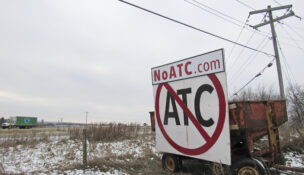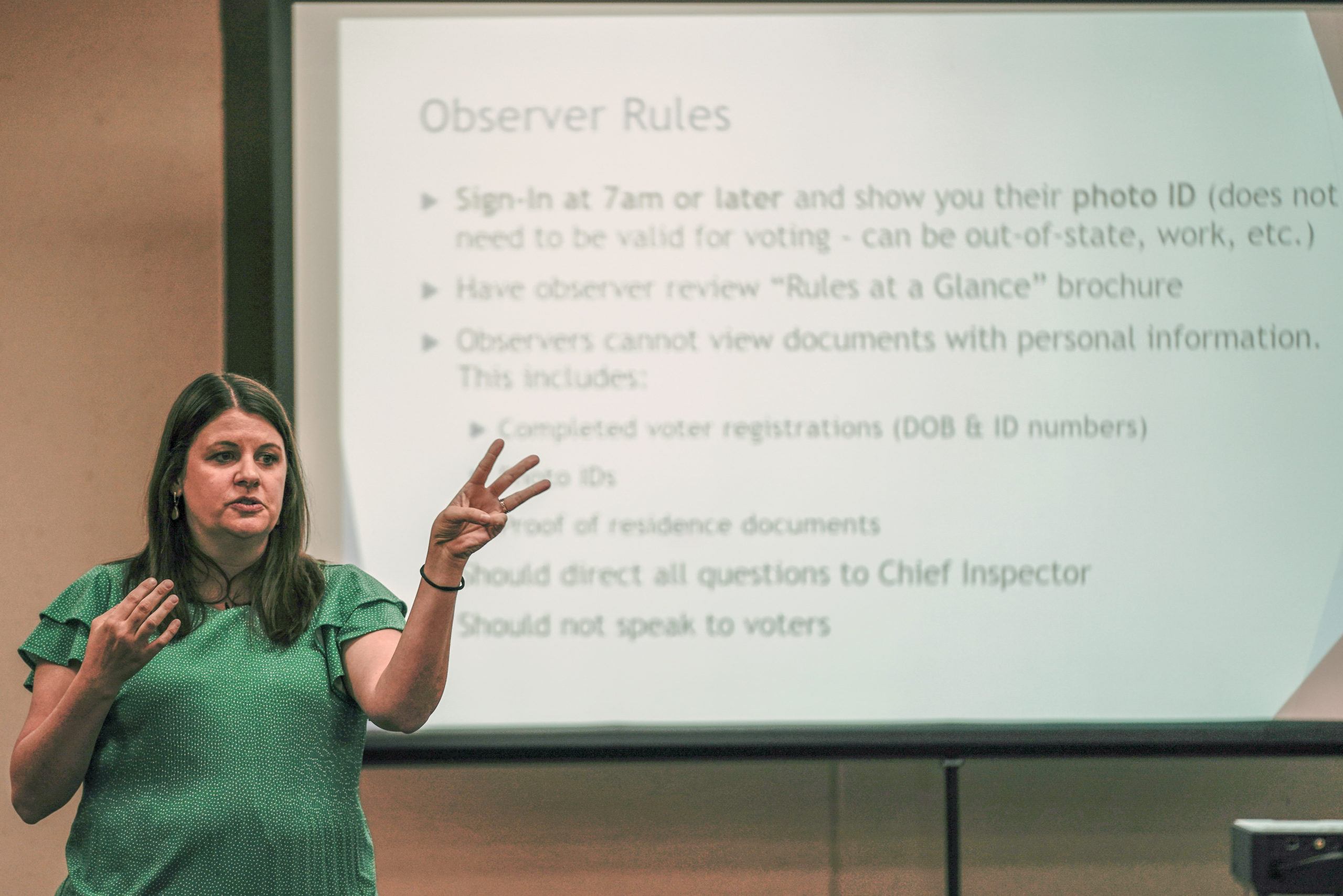Labor Logic
By: dmc-admin//November 17, 2004//
 |
|
John D. Finerty, Jr. |
On Nov. 9, 2004, the Wisconsin Supreme Court released its decision in Insurance Co. of North Amer. v. Cease Electric — another in a long line of recent economic loss doctrine cases. The Court rejected application of the economic loss doctrine that, in previous cases, barred tort claims for negligence, misrepresentation, emotional distress, pain and suffering and compensatory and punitive damages. As we shall see, this is a developing area of the law. This week we review the Cease Electric decision; next week we offer an analysis and critique.
The Latest Case: The Economic Loss Doctrine Does Not Apply To Service Contracts
In Insurance Co. of North Amer. v. Cease Electric, 2004 WI 139, the Court held the economic loss doctrine did not apply to allegations of a negligent equipment installation because installation of a ventilation system was a "service" as opposed to a "product." Cease Electric had improperly wired a ventilation system in a barn at Cold Spring’s egg farm that resulted in losses when the system failed and approximately 18,000 of its hens died. The Court ruled the economic loss doctrine — the rule that bars tort claims over contract and warranty issues — does not apply to contracts for services.
The egg farm’s insurer paid its losses and sued Cease Electric in tort for recovery on a negligence theory. The jury found Cease Electric negligent. Cease Electric was thus responsible for the cost of rewiring the ventilation system and the cost to replace the hens. As a result of the Court’s ruling, it will also have to repay the revenue lost by virtue of the hens’ death.
The Court granted review in Cease Electric on two issues: whether the economic loss doctrine applied to contracts to provide service and whether it applied to mixed contracts for products and services. The Court found no evidence in the record that Cease Electric provided any services, even though it claimed to have provided a thermostat and electrical conduit. The Court, therefore, did not decide the second issue because it held the contract on the case was one for services only.
Background on the ELD
The economic loss doctrine is rooted in product liability cases. As the Court noted, one of the first applications appeared in the California case of Seely v. White Motor Co., 403 P.2d 145 (Cal. 1965). The doctrine developed because courts viewed warranty law and the law of contracts as better suited to deal with product defect cases. Eventually, the United States Supreme Court approved the economic loss doctrine in East River S.S. Corp. v. Transamerica Delaval, 476 U.S. 858 (1986).
That case held that a claim for purely economic losses arising out of a product’s failure to perform up to the purchaser’s expectations should be a contract case, rather than a tort case.
The Court wrote the following in East River: "Contract law, the law of warranty and the uniform commercial code are designed to allow the parties to allocate the risk of product failure." Wisconsin adopted the economic loss doctrine in Sunnyslope Grading, Inc. v. Miller, Bradford & Risberg, Inc., 148 Wis. 2d 910 (1989).
Importantly, all three of these leading cases involved an alleged defective product. Seely was a warranty case that involved defective truck brakes that failed and caused a rollover; in East River, the product was a defective turbine in a super-tanker; Sunnyslope Grading alleged defects in a piece of construction equipment. Cease Electric, in contrast, provided electricians’ services to wire a ventilation system.
The policy behind applying the economic loss doctrine to contracts for products, but not services, is the availability of a clear set of remedies for product defects, such as those remedies in the Uniform Commercial Code. The UCC, however, does not apply to services. Also, services, unlike products, usually do not come with warranties.
The economic loss doctrine, thus, does not apply to contracts for services in Wisconsin. This is an important distinction for attorneys and businesses to understand because, whether or not the economic loss doctrine applies, turns on whether the contract in question calls for products or services. Businesses that provide only services face tort and contract claims.
Preventative Measures
There is a basic approach to dealing with almost any business risk. First, you avoid the risk. If you can’t avoid it, minimize it. Once you have minimized the risk, you then buy insurance to cover it. Businesses follow this approach routinely. For example, companies guard against hazardous conditions and unsafe workplaces. No workplace is entirely safe, so companies train employees to work safe. Companies then buy workers compensation insurance because — despite their best efforts — employees will be injured on the job. Companies need to have the same mindset when evaluating potential tort liability for services rendered negligently.
Here are a few suggestions on how:
1. Review employee performance evaluations and training programs to make sure employees have state-of-the-art information to do their job.
2. Review all contracts to make sure they specify the products or services provided and set out which party is responsible for carrying insurance.
3. Audit contracting procedures to make sure all projects — large and small — have written contracts in place prior to commencing work.
4. Review the company’s insurance policies. Then quiz the agent or broker about which claims are covered. Get any commitments to cover tort liability for allegations of negligently provided services in writing if it is not already spelled out in the policy.
For more information on this case or for assistance defending a service contract claim, contact John D. Finerty, Jr. at Michael Best & Friedrich at (414) 225-8269 or on the Internet at [email protected].
Legal News
- Audit launched of Wisconsin’s diversity efforts
- Federal appeals court approves high-voltage power line through Mississippi River refuge
- Dane County residents encouraged to weigh how to spend federal funds
- Jurors should have considered stand-your-ground defense in sawed-off shotgun killing, judges rule
- Money isn’t enough to smooth the path for Republican candidates hoping to retake the Senate
- Milwaukee election leader ousted 6 months before election in presidential swing state
- Former President Trump calls for arrest of special prosecutor Jack Smith
- Wisconsin judge dismisses lawsuit challenging state’s new wolf management plan
- Wisconsin Supreme Court issues opinion on Milwaukee Police officer fired over Facebook posts
- Gov. Evers Seeks applicants for Menominee County Register of Deeds
- Donald Trump calls Joe Biden weak on antisemitism, ignoring his own rhetoric
- Gov. Evers again calls Republican lawmakers into special meeting
WLJ People
- Power 30 Personal Injury Attorneys – Russell Nicolet
- Power 30 Personal Injury Attorneys – Benjamin Nicolet
- Power 30 Personal Injury Attorneys – Dustin T. Woehl
- Power 30 Personal Injury Attorneys – Katherine Metzger
- Power 30 Personal Injury Attorneys – Joseph Ryan
- Power 30 Personal Injury Attorneys – James M. Ryan
- Power 30 Personal Injury Attorneys – Dana Wachs
- Power 30 Personal Injury Attorneys – Mark L. Thomsen
- Power 30 Personal Injury Attorneys – Matthew Lein
- Power 30 Personal Injury Attorneys – Jeffrey A. Pitman
- Power 30 Personal Injury Attorneys – William Pemberton
- Power 30 Personal Injury Attorneys – Howard S. Sicula










